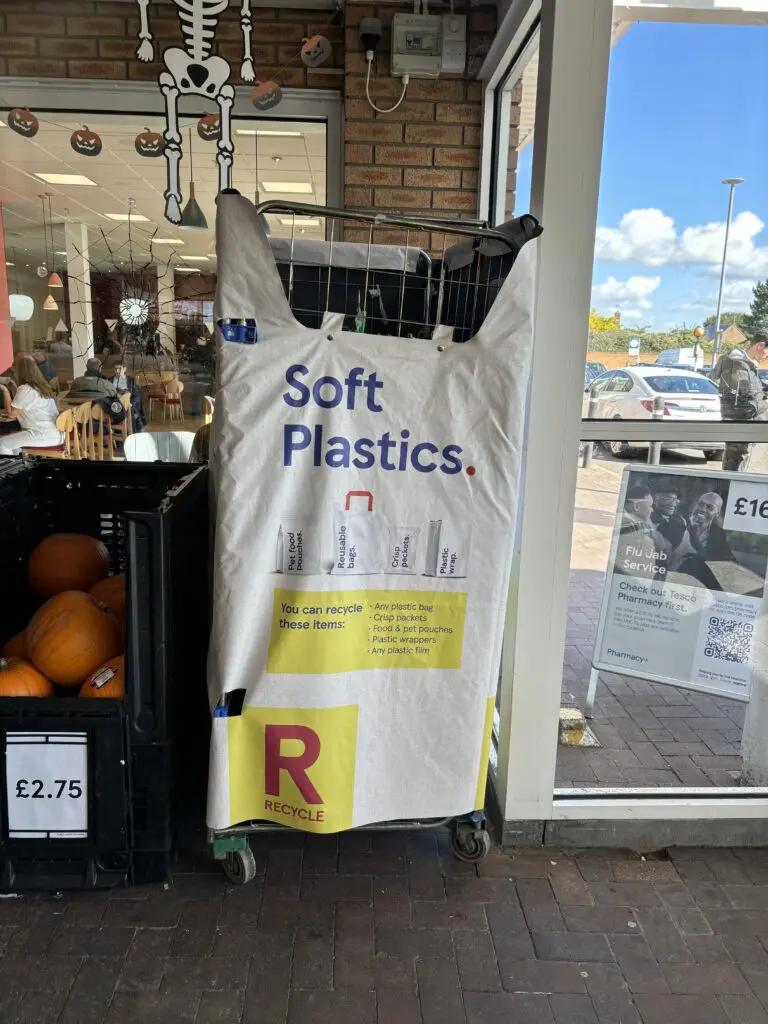Leading UK supermarkets are being accused of misleading shoppers over takeback schemes for flexible plastics.
Campaigners followed consignments of used flexible packaging that had returned to supermarkets for recycling. They found a significant proportion was sent for energy recovery instead.
Members of Everyday Plastic placed 40 electronic trackers inside collections at Tesco and Sainsbury stores. Seventeen were traced to their final destination, 12 were used as fuel pellets or burned for energy.
Challenges
When Sainsbury’s launched its takeback scheme in 2021 it said: ‘The innovative recycling system allows customers to recycle polypropylene film found in several household products’.
Alison Colclough of Everyday Plastic said: ‘Supermarkets, waste companies and the government acknowledge that there are significant challenges to recycling soft plastic. Our tracker investigation supports these claims. It shows that soft plastic is extremely difficult, if not impossible, to recycle at scale.
‘The take-back schemes are being presented as a solution, which is diverting attention from the main issue that can’t be overlooked. Namely that far too much unnecessary plastic packaging is being produced.’
Alternative uses
British media reported the supermarkets’ reaction. Sainsbury’s said: ‘We collect a small volume of flexible plastic overall in store. The majority is in good condition and so is recycled. However, when materials are soiled or damaged then they may need to be converted for energy, which is managed by our supplier.’
Tesco’s added: ‘Where it is not possible to recycle the collected plastic, we put it to alternative uses to avoid these materials going to landfill. Energy recovery is one example.’
Don't hesitate to contact us to share your input and ideas. Subscribe to the magazine or (free) newsletter.



